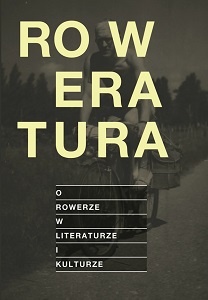„CO WYBUCHŁO?” – MAŁA METALOWA DZIEWCZYNKA NA TRÓJKOŁOWYM ROWERKU I INNE DZIECI HOLOKAUSTU
“WHAT EXPLODED?” – A SMALL METAL GIRL ON A TRICYCLE AND OTHER CHILDREN OF THE HOLOCAUST
Author(s): Magdalena Rewerenda
Subject(s): Language and Literature Studies, Fine Arts / Performing Arts, Studies of Literature, Recent History (1900 till today), Special Historiographies:
Published by: Stowarzyszenie Czasu Kultury
Keywords: Dorota Masłowska;Grzegorz Jarzyna;Tadeusz Kantor;post memory;bicycle theory;bicycle in culture;
Summary/Abstract: PL: Esej analizuje wybrane utwory literackie (m.in. Zaklęcie na „w” Michała Rusinka, Między nami dobrze jest Doroty Masłowskiej, Chleb rzucony umarłym Bogdana Wojdowskiego) i teatralne (spektakl Grzegorza Jarzyny na podstawie dramatu Masłowskiej i Niech sczezną artyści Tadeusza Kantora), poruszających temat dzieciństwa przypadającego na czasy wojny i Zagłady lub obarczonego piętnem powojennej postpamięci. We wszystkich omawianych tekstach i spektaklach symbolem tęsknoty za bezpowrotnie utraconym okresem beztroski, wolności i zabawy jest rower. Refleksji poddana została jego dwoista i paradoksalna natura: kojarzony zazwyczaj z sielankowym pędem życia, w zaskakujący sposób odsłania swoje posępne konotacje, a objawiając się w swej materialności, odsyła do tego, czego nie ma i co nigdy nie powróci.
EN: The essay analyzes selected literary works (including Michał Rusinek’s Spell on W, Dorota Masłowska’s All is Right Between Us, Bogdan Wojdowski’s Bread Thrown to the Dead) and plays (Grzegorz Jarzyna’s performance of Masłowska’s drama and Tadeusz Kantor’s Let the Artists Die) dealing with the subject of childhood during times of war and the Holocaust, or of childhoods burdened with the post-memory of past wars. In all these texts and performances, the bicycle is a symbol of the longing for an irrevocably lost period of carefree freedom and joy. The article reflects upon the bicycle’s dual and paradoxical nature: although usually associated with a bucolic pace of life, it suddenly exposes its gloomy connotations, referring – through what it reveals in its materiality – to what is absent and what will never return.
Book: Roweratura. O rowerze w literaturze i kulturze
- Page Range: 85-98
- Page Count: 14
- Publication Year: 2015
- Language: Polish
- Content File-PDF

